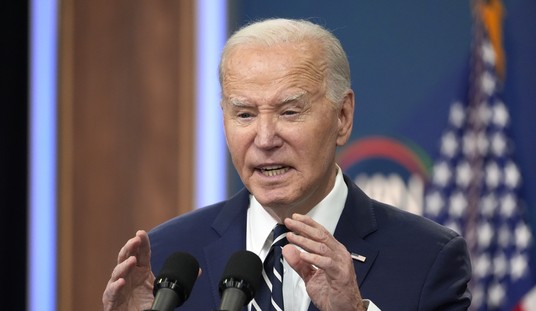
Americans were astonished two months ago after newly unsealed internal FBI notes taken by the agency’s former assistant director of counterintelligence, Bill Priestap, showed top bureau officials discussing strategy ahead of their January 24, 2017 interview of General Michael Flynn. FBI officials were debating the best way they could set him up in a perjury trap.
Several days later, sources familiar with the Durham investigation told Fox News that John Durham had reviewed the Flynn documents and was disturbed that no whistleblowers came forward early on. Considering that there were more than a few officials who had to be aware of what was going on, including support staff, Mr. Durham found it remarkable that no one spoke up “at the onset.” One would think he might have learned by now that the only use members of the deep state have for whistleblowing is when it can be used as a weapon against the right. I posted on this story here.
The next day, I received an email from one of my readers who said he could easily answer Mr. Durham’s question. It’s because “No one in the FBI or the DOJ wanted to engage in a futile suicide mission that would put them and their families through years of hell, cost them hundreds of thousands of dollars, and put their pensions at risk, all so that their information could be ignored.”
William Henck knows, because he lived it.
Mr. Henck’s story is the polar opposite of alleged whistleblower Eric Ciaramella’s, whose bogus complaint to then-Intelligence Community Inspector General Michael Atkinson last August triggered President Trump’s impeachment. Not only did my reader not receive the kid-glove treatment Ciaramella did, he was terminated from his position as an IRS attorney after 30 years of service.
In November 2017, Mr. Henck was forced out for being a whistleblower. During his career at the IRS, he reported the bullying of World War II veterans, evidence of a cover-up in the Lois Lerner (or Tea Party) case, and the improper giveaway of literally billions of dollars to taxpayers represented by sketchy Washington lobbyists.
Mr.Henck said he reported his concerns both internally and externally, to his supervisor, to upper management, to the Treasury Inspector General for Tax Administration (TIGTA), to the Office of Special Counsel (OSC), to Congress, to Trump political appointees in the Treasury Department, and to the media. And none of his detailed complaints of misconduct were ever investigated. Not a single one.
Here’s what happened to Mr. Henck:
In 2016, the IRS Office of Chief Counsel sent me a notice of proposed termination for allegedly disclosing taxpayer information under section 6103. Their theory was that because my name appeared in a Washington Post article, people could read that article and identify a specific taxpayer. Their theory was ridiculous, but it did not matter. My attorney advised to me to take a deal where I could work another year to get 30 years in and then retire. He reasoned that even though the case was absurd and even though my civil service rights had been shredded, I faced an amoral foe with unlimited resources, no downside risk, and a willingness to lie to get rid of me. Basically, the process would have become the punishment. By being forced out early, I lost approximately $400,000, and even more importantly, my family and I went through years of hell. My wife and I were even subjected to a retaliatory income tax exam.
In August 2017, he provided the names of nine individuals to TIGTA who had witnessed substantive IRS misconduct, including bullying elderly taxpayers, ignoring a congressional subpoena in the Lois Lerner case, and improperly giving away literally billions of dollars to taxpayers represented by Washington lobbyists. None of those witnesses were ever contacted by TIGTA. When he asked five of them directly if they had been contacted, all of them laughed.
Mr. Henck said, “To me, the crux of the matter is the fact that TIGTA never contacted those nine witnesses. They can duck, bob, and weave all they want, but they either contacted those witnesses or they did not contact them. Period.”
After he had left the IRS, Mr. Henck was made aware that a female employee (in the IRS) had been subjected to truly disgusting sexual abuse and retaliation by both IRS executives and TIGTA. Like Mr. Henck, she was forced to take early retirement after years of retaliation. “Incidentally,” he says, “she also has information about the Lois Lerner/Tea Party case cover up and was told to keep her mouth shut about it.”
In the spring of 2016, this woman reported that there was a room full of documents in the Lois Lerner case on the second floor of the IRS National Office that “had not been touched.” When she raised concerns with management, she was told to keep her mouth shut.
In August 2018 (nine months after his termination), Mr. Henck contacted Treasury General Counsel Brent McIntosh, IRS Commissioner Charles Rettig, and IRS Chief Counsel Mike Desmond to inform them he had specific information concerning misconduct within the IRS and offered to meet with them. None of them responded.
With respect to the Lois Lerner case, one of the witnesses TIGTA failed to contact told Mr. Henck that a leader in the IRS document response team had bragged to him that the IRS was ignoring a congressional subpoena with respect to the relevant emails of IRS Chief Counsel William Wilkins.
Mr. Henck had also contacted the Senate Finance Committee and heard nothing back. He explained that people are very reluctant to report misconduct in the IRS because they are scared. They know that TIGTA is a captive entity of IRS management and that whistleblowers will be dealt with harshly.
One way that the IRS can retaliate against people is through the use of retaliatory income tax audits. It happened to Mr. Henck and his wife, Tea Party activist Catherine Engelbrecht, and numerous others. He notes that “When they wanted to get rid of me, they shredded civil service rules and broke the law. And what is to stop them? Congress does not care and TIGTA actively colludes with them.”
Mr. Henck has a question for the people in Washington:
What do they say to the American taxpayers? ‘Well, sure, the IRS lies all the time, but we want you to tell the truth. And the IRS hides and destroys documents, but we want you to provide all of your documents. And the IRS habitually breaks the law, but we want you to voluntarily comply with the Internal Revenue Code.’
Maybe that could work long term if the IRS was still an efficient agency, but it’s not. It is a corrupt and dysfunctional shell of its former self and it has lost both the moral authority and the ability to enforce the Internal Revenue Code.
Sadly, Mr. Henck’s story, as disturbing as it is, is what happens when government officials blow the whistle on corruption inside of the federal government. Whistleblowers face an amoral foe with unlimited resources and a willingness to lie.
Finally, he addresses Mr. Durham’s surprise that no whistleblowers came forward early on to assist Gen. Flynn. He explains that “Based on my experiences, if anyone in the FBI or DOJ had reported his or her concerns, they would have been retaliated against ruthlessly. Furthermore, none of their assertions would have been investigated. When it comes to federal government whistleblowers, there are no civil service or whistleblower protections. If I had downloaded porn or slept on the job, I would have had warnings, been counseled, and had union protection. Because I did my duty and reported significant misconduct, I had none of that. I had no protection or assistance. And I guarantee you that any FBI or DOJ whistleblower would have been in the same boat.”
Powerline’s Scott Johnson reported numerous times as Mr. Henck was going through his ordeal. Johnson published a series of his personal accounts that can be accessed by clicking on “Inside the IRS.” In one piece, “Inside the IRS, part 8,” he argued:
“[t]he rule of law at the IRS died” following a lengthy illness and “[t]he immediate cause of death was IRS attorney executives giving themselves large bonuses and then illegally keeping those bonuses secret.”














Join the conversation as a VIP Member